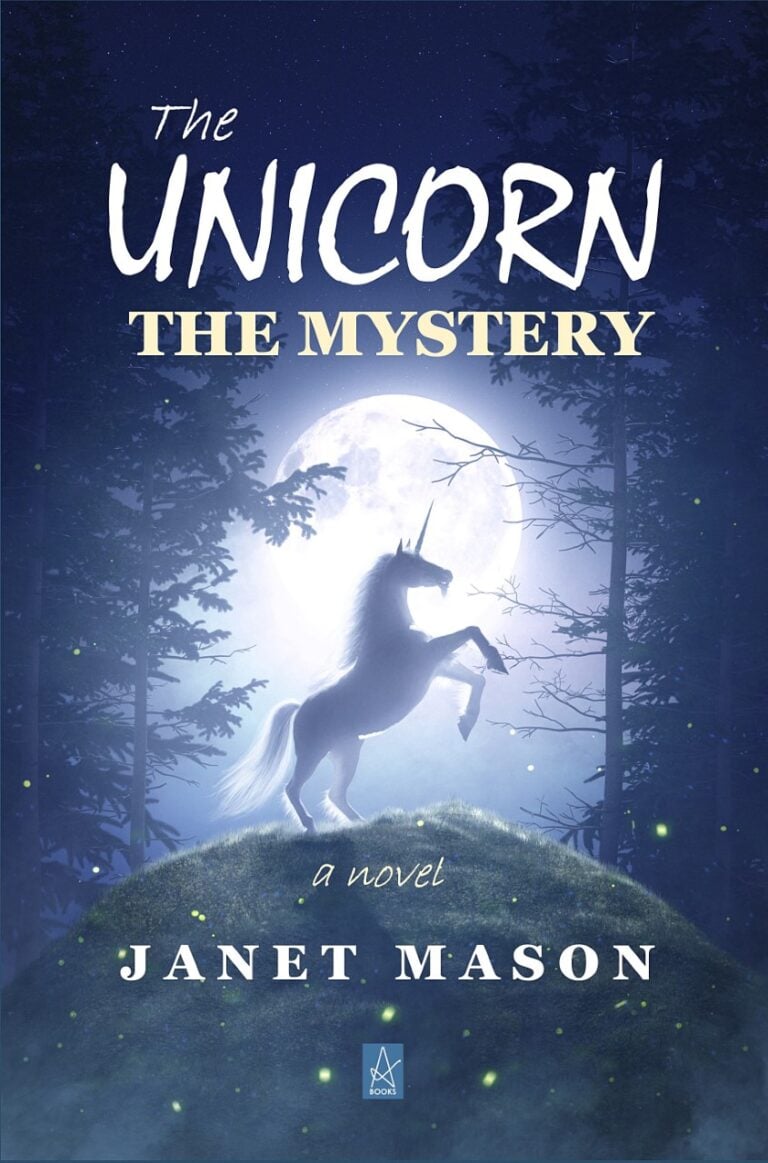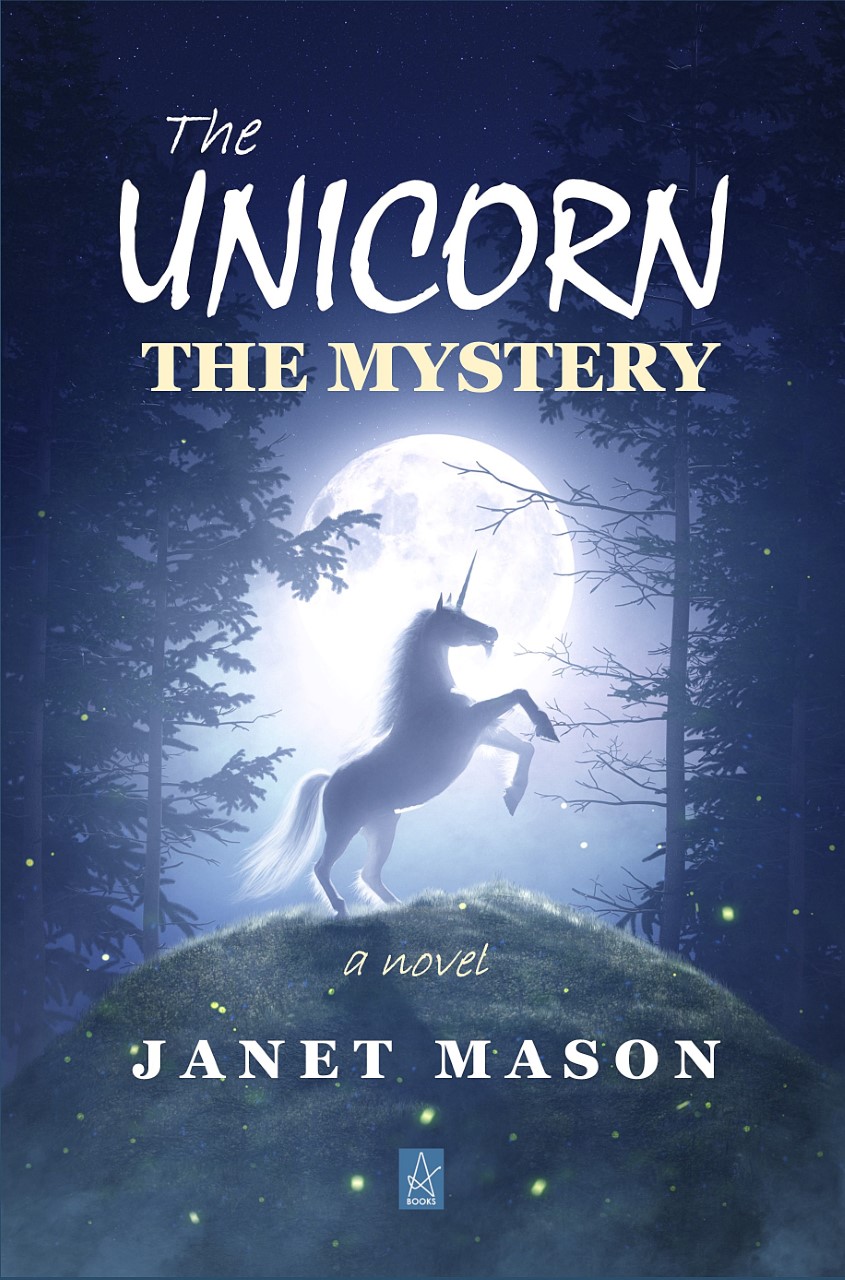Janet Mason’s THE UNICORN, THE MYSTERY is a historical speculative novel of magic and morality. In a medieval setting, young monk Apolo sees a lone unicorn in a forest one day and becomes obsessed with her, believing her to be the perfect symbol of Jesus, purity, and beauty. He is overcome with innocent love for the creature, and his teacher, the abbey’s priest, worries that he is worshipping a false idol. When Apolo tells the bishop about the unicorn, hunters begin to seek out the unicorn in hope of a reward. Apolo and the unicorn navigate the few days detailed in the novel while contemplating the meaning of their existence and examining the lives of those around them. Both Apolo and the unicorn are observers. They contemplate the goings-on of their peers and their surroundings without taking much decisive action themselves. As characters and as narrators, they are sweet and likeable. Apolo strives to be a good, moral monk, but when he sees others taking an untraditional approach, he forms a new understanding of himself and the world. The unicorn’s vanity and curiosity about humans are endearing. Oddly, the unicorn can smell whether or not a girl is a virgin, a creepy ability she uses often to decide whether or not she would like to “lay her head in their lap.”
Among the people that Apolo and the unicorn observe from a distance are two nuns in love who hope to run away together, a young nun who successfully runs away with a local carpenter, and a warrior maiden who the unicorn wonders if she can trust. While it is sometimes implausible that Apolo and the unicorn could overhear these characters’ conversations without being seen, the inclusion of these individuals brings significant intrigue to the story and makes the characters think. The lesbian nuns, for instance, worry about Mother Superior discovering them, but they come to believe their love is a special, pure kind of love; the arc of their discussions over the course of the book mirrors Apolo’s inner monologue as he inquires as to whether his love for the unicorn is appropriate and worries what his superiors think of his obsession with the magical creature.
Apolo and the unicorn alternate in narrating the story, both in the first person point of view. There is no designation as to who is narrating at the beginning of a chapter; the reader must discern whether it is Apolo or the unicorn based on the context of the narrator’s actions and the setting. The unicorn’s narration often switches back and forth between past and present tense, which confuses the order of events. Some events themselves feel a bit contrived, as when the unicorn is surrounded by hunters, and she “somehow” gets free; since her “memory is so murky,” and the description of her escape is so vague, it feels unbelievable, like the author didn’t know how she escaped either.
The inner lives of the main characters are what makes the novel most compelling, even though the two of them never formally meet. Apolo in particular elucidates the book’s themes and purpose through his contemplation of morality in the context of Christianity; his observations about himself and others are poignant and wise, and his discussions with his teacher, the priest, offers a dynamic perspective to round out his developing belief system. These one-on-one conversations between Apolo and the priest are exploratory sessions on ethics and faith and are as thought-provoking as they are entertaining. The intricacies of the relationship between student and teacher—student hoping to impress his mentor without upsetting him, teacher hoping to impart wisdom and to retain a stoic image while dealing with his own moral quandaries—are on full poetic display here.
THE UNICORN, THE MYSTERY is a wise historical fantasy novel that will find a captive audience in those interested in sexuality, gender, and magic through a Christian lens.
~Aimee Jodoin for IndieReader


